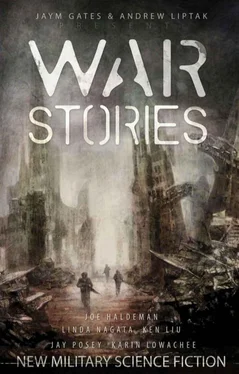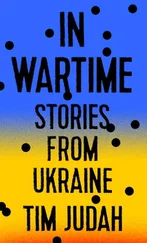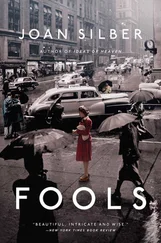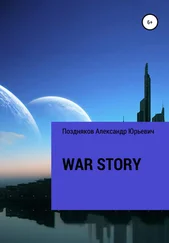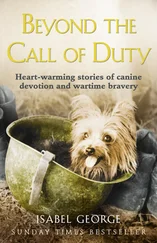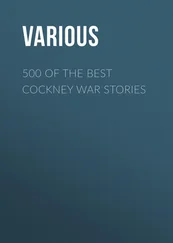“My son is a hero,” he says. “They attacked us first on Aidan, and Nick did everything you asked and sacrificed himself to surgical procedures that could have killed him—all for the war. He was a kid when you people conscripted him.”
She shakes her head. “Mr. McLaughlin, there are details I can’t give; things that happened.”
“Tell him,” I say. “The Siph know and they’ll be here in an hour so what difference does it make if he knows too? Tell him about my targets; tell him why .”
Jennifer hesitates and then stutters. “I can’t. I’d lose my job, Jim—Nick.”
Dad looks back and forth at us. Since I’m about to be handed over, there’s nothing to stop me from telling the whole truth except that I don’t want him to think the worst but if I don’t it means he’ll be confused for the rest of his life, not understanding what made it so important for me to be handed over. I’m still thinking when Jennifer inhales with a wheeze. It’s the sound she’s made every time for the past hour when she’s about to speak and for some reason the thought of her voice makes my decision easy.
“I killed Siph juveniles, dad. Their babies. They were my primary target—not their warriors—and millions of them died while they slept in their nurseries. Our antimatter bombs trigger a chain reaction with the material in a Siph juvenile’s carapace and they scream in a way that makes you think millions of little girls are being burned alive.” I pause but Dad doesn’t react. His stare makes me ashamed and the heat of that shame is so intense that I imagine it must be visible in waves off my cheeks, and I wish there was some way to hide, so I look away. “We captured one of their bio stations early in the war—when things were still going well. We got lucky; the station had a bunch of research outlining Siph reproductive habits and someone got a brilliant idea: kill all their offspring. Destroy one generation of Siph and you annihilate the entire race.”
He looks just as confused as he did a few minutes ago and shakes his head. “I don’t understand. How does going after their children annihilate the race?”
“Siph reproduce once every hundred years. So their warrior cadre is a fixed number, which can’t get bigger, they can’t reproduce on the fly, and all the older adults die as soon as juvenile Siph become adults— every hundred years . It’s hardwired in their genetics. So if you get rid of their kids, you win the war—assuming you can stay alive for another eighty to ninety years.”
Dad’s face goes white. At first I think he’s going to pass out but he leans over in his chair and hugs me so I can’t breathe, and then whispers into my ear it’s not your fault; you were a child and you’re my son . Jennifer motions for the guards. The three of them slip out the door and lock it shut, leaving us alone for the last hour so we can say goodbye.
§
Jennifer and I wait for the Siph in an airlock outside their shuttle and without warning my system activates to make my fingers tremble with adrenaline. For the first time in over a year the butterfly and antigravity controllers flick on while I’m conscious, overlaying their data patterns on both retinas. Jennifer was telling the truth: the techs never fried the drone controls like they claimed and had reprogrammed major systems so they’d stay dormant until I slept—or they’d trigger melatonin production to make me fall asleep. Now my fear response is so intense that it triggers full systems activation, surprising me with a feeling of exhilaration that had been missing during the dream sessions.
Targeting systems calculate escape vectors and urge me to do something—to kill Jennifer and head back through the airlock door behind us, on the other side of which is a small army of guards who would shoot me if I tried, a piece of information that slows my processors for only a second. Then we try a different tactic. The communications system sends electromagnetic beams to sweep the enclosed space, searching for anything to hack into, any way to change the calculus and give me an advantage because it doesn’t want us to die .
“We won the war, Nick,” says Jennifer. “The story that we lost is just that: a story. Another lie. You deserve to know that before… you know.”
She’s hard to understand, since we’re both wearing respirator masks in preparation for exposure to the Siph atmosphere; I turn to face her. “What are you talking about?”
“You accomplished your mission. In ninety years we’re going to take back everything we lost, and it’s all because of you and what you’ve been doing while on the run; you wiped out over ninety percent of their juvenile population and they can’t recover from it. All humanity has to do is survive. The military is taking your father to someplace safe right now, to a system that’s only known to a fraction of us, and I leave tonight so I’ll make sure he’s safe.”
I shake my head and turn back to face the far airlock door, worried that at any moment I might strangle her. “People like you don’t get it, Jennifer; you weren’t at Listman. As soon as I hit the first nursery they came out of nowhere and ripped open our fleet with antimatter beams—not tiny warheads. I’m talking about three–centimeter–wide, continuous beams of the shit, a kind of weaponry we had no idea they had, and I just managed to escape in a stealth pod that got picked up by one of your intel ships eight months later. I’ve been on the run ever since. And still they found me.”
“What’s your point?”
“You might make it,” I say, “but you didn’t hear the screams. The Siph will look for you the same way they came after me at Listman and beyond, and if they find you they won’t care if neither race survives, and even if they don’t find you your dreams will; and sometimes those are worse than butterflies.”
§
Now I know why Jennifer told me about the planetary system where she and others hoped to hide: it’s because my brain keeps secrets even from me—like the fact that it can self–destruct; the thing has a failsafe. As soon as the Siph airlock opens, my wetware has an apoplectic seizure and an intense heat sears the inside of my skull, making me scream while the airlock fills with the smell of molten plastic and burning flesh. Plastic drips onto my back. And I’m already forgetting; memories of first this day and then everything else fading into a kind of grey haze, mixing with the pool of molten material on the floor that chars my hand when I fall to my knees. But soon the pain lessens; there are colors everywhere and a sense that tall insect–like figures surround me but it’s hard to get a clear view through all the butterflies, which now swarm by the thousands, forming a cloud of pink and blue and orange wings and I laugh because their fluttering tickles me and for some reason they can talk, whispering something that makes me warm and happy—that now there will be no more dreams. Ever.
Always the Stars and the Void Between
Nerine Dorman
THE LITTLE DOG STOOD ON the sill overlooking the yard. The sun had long ago bleached the cedar from which he’d been carved to the same hue as old bones. I didn’t want to think about bones, but I couldn’t resist picking up the figurine and running my fingertips along his spine and pointy ears.
Derik had given the dog to me so long ago: in reality, only seventeen years, but it felt like a lifetime. It might as well have been an eternity. My time serving the African Federation equalled my childhood years on the farm.
Читать дальше
